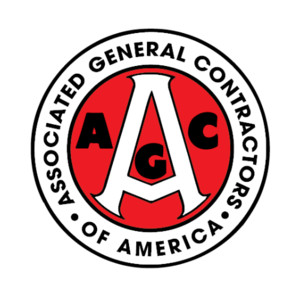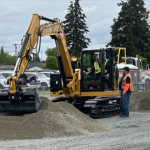Staying in Top Shape: Essential Tips for Construction Workers Off the Job
Construction work is physically demanding and can take a toll on the body over time. To maintain peak performance and reduce the risk of injuries or chronic pain, construction workers need to prioritize their health and fitness even when they’re off the job. Here are some practical tips to help construction workers stay in top shape and ensure their bodies are well-prepared for the demands of their profession.
or chronic pain, construction workers need to prioritize their health and fitness even when they’re off the job. Here are some practical tips to help construction workers stay in top shape and ensure their bodies are well-prepared for the demands of their profession.
1. Strength Training
Strength training is crucial for construction workers as it builds muscle and improves overall stability. Incorporate exercises that target key muscle groups used in construction work, such as the back, shoulders, legs, and core. Weightlifting, resistance bands, and bodyweight exercises like squats, lunges, and push-ups can enhance muscle strength and endurance. Focus on exercises that mimic the movements performed on the job to improve functional strength and reduce the risk of injuries.
2. Flexibility and Stretching
Flexibility is essential for preventing injuries and maintaining a full range of motion. Regular stretching can help alleviate muscle tightness and improve overall flexibility. Incorporate stretches that target areas commonly strained in construction work, such as the hamstrings, lower back, and shoulders. Yoga or dynamic stretching routines can be particularly beneficial for increasing flexibility and reducing muscle tension.
3. Core Strengthening
A strong core is vital for supporting the spine and reducing the risk of lower back injuries. Engage in core-strengthening exercises like planks, Russian twists, and leg raises to build a robust foundation. A strong core helps improve balance and stability, making it easier to handle physical tasks and maintain proper body alignment.
4. Cardiovascular Fitness
Cardiovascular fitness is important for overall health and endurance. Incorporate aerobic exercises like running, cycling, or swimming into your routine to improve cardiovascular health and stamina. Better cardiovascular fitness can enhance your energy levels and overall resilience, helping you tackle physically demanding tasks more efficiently.
5. Proper Nutrition
A balanced diet plays a crucial role in maintaining optimal health and energy levels. Ensure your diet includes a mix of lean proteins, whole grains, fruits, and vegetables. Protein is essential for muscle repair and growth, while carbohydrates provide the energy needed for strenuous work. Stay hydrated by drinking plenty of water throughout the day, especially after intense physical activity.
6. Adequate Rest and Recovery
Rest and recovery are critical components of any fitness regimen. Allow your body time to recover between workouts to prevent overuse injuries and burnout. Aim for 7-9 hours of quality sleep each night to support muscle repair and overall health. Incorporating rest days into your exercise routine can also help prevent fatigue and improve performance.
7. Mindful Body Mechanics
Maintaining proper body mechanics during daily activities and workouts can help prevent injuries. Practice good posture and use correct lifting techniques to reduce strain on your muscles and joints. When lifting heavy objects, bend your knees and keep your back straight to minimize the risk of back injuries.
8. Regular Health Checkups
Regular health checkups are important for monitoring overall health and addressing any potential issues before they become serious. Schedule routine visits with your healthcare provider to assess your physical condition and discuss any concerns related to your construction work. Early intervention can help prevent long-term health issues and ensure you stay in optimal shape.
9. Stress Management
Managing stress is essential for overall well-being and physical health. High levels of stress can contribute to muscle tension and exacerbate pain. Engage in relaxation techniques such as deep breathing, meditation, or mindfulness to reduce stress levels. Finding healthy ways to cope with stress can improve your overall quality of life and help you stay focused and energized.
10. Skill Maintenance and Improvement
Finally, continue to develop and refine your skills both on and off the job. This can include learning new techniques for handling tools or equipment more efficiently or improving your knowledge of ergonomic practices. Staying informed about best practices and advancements in construction can help you work smarter and reduce the risk of injuries.
By incorporating these strategies into your routine, you can enhance your physical fitness, prevent injuries, and improve your overall quality of life. Staying in top shape off the job will not only benefit your performance on the construction site but also contribute to long-term health and well-being. Prioritizing your physical health ensures that you can continue to enjoy a successful and fulfilling career in construction while minimizing the risk of pain and injury.








